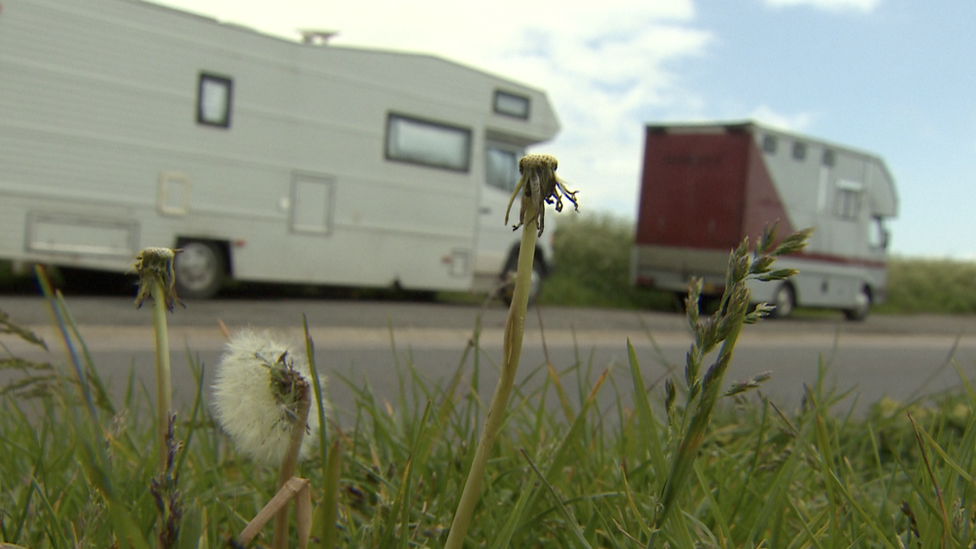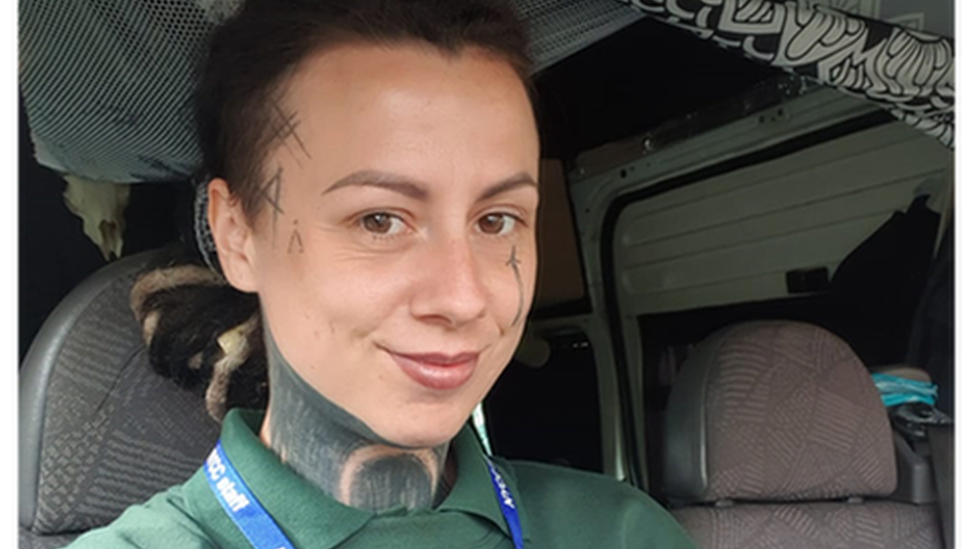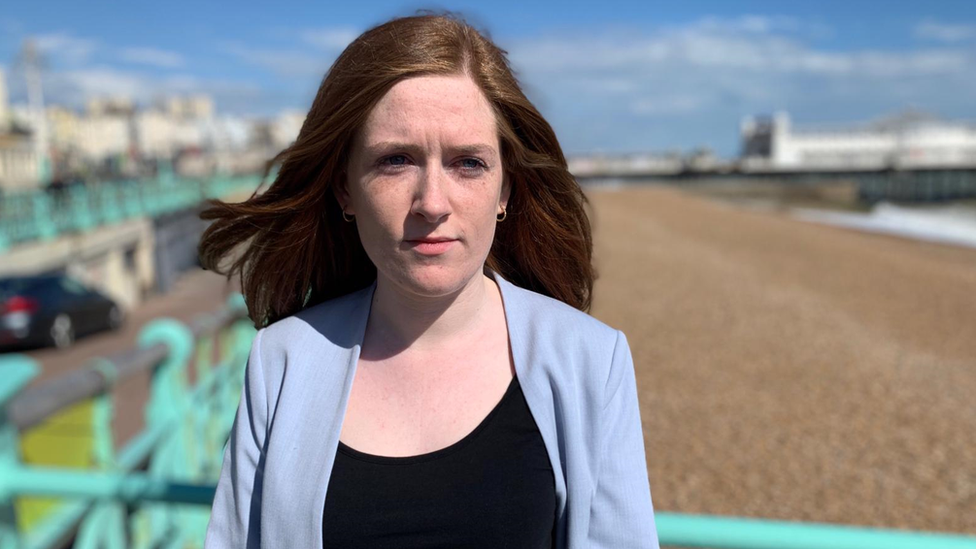Coronavirus: Travellers 'struggling without water and power'
- Published

Roadside families have been without water and sanitation after public services shut
Travellers have told the BBC the coronavirus pandemic has left them struggling for weeks without access to water, electricity or sanitation.
Some have received eviction threats while one pregnant woman said the hardship was severely affecting her mental health.
A national charity supporting the community said calls to its helpline had doubled.
The government said it has written to councils about providing services.
Around 10,000 Gypsies and travellers currently live roadside on unauthorised encampments while around 70,000 reside on sites, according to charities.
Some Irish Travellers asked to be anonymous because of fears about public abuse.
Charlene, not her real name, is in her early 20s and pregnant. She lives with her husband's family on an overcrowded council-run site in London with a single, shared amenity block.
She told the BBC she has had no separate access to running water to help her self-isolate, or any electricity during the lockdown.
"I'm about to be a mum for the first time and feel very vulnerable.
"My anxiety and depression couldn't be higher... I'm feeling let down and at risk of infection."
Josie, also not her real name, is living roadside with her family, including 18 young children, in caravans in London.
She said they have had no access to electricity, running water or toilets for more than six weeks.
They had been relying on public amenities and local facilities such as leisure centres, but these have all temporarily closed.
"Why are travellers forgotten about at times like this?" she asks. "We are human beings."
Debby Kennett, head of London Gypsies and Travellers, an organisation which challenges social exclusion and discrimination, said vulnerable families had been given "no support" by local councils.

Chloe has been stopped by police four times since the lockdown started and threatened with fines
Chloe, 32, from Scarborough, lives in a van with her eight-year-old daughter and has been asked to relocate four times by police in the last month.
"I've been constantly on edge, stopped at all hours of the night and my mental health has really suffered," she said.
She is employed on the frontline as a community support worker aiding the rehabilitation of hospital patients, many of whom are recovering from coronavirus.
"I've been made to feel like an outcast from the community where I've lived all my life and paid my taxes," she said.
She said her local council suggested she either leave the town or register as homeless to stay in a bed and breakfast, but Chloe said no children or pets were allowed.

A SIMPLE GUIDE: How do I protect myself?
AVOIDING CONTACT: The rules on self-isolation and exercise
HOW A VIRUS SPREADS: An explanation
LOOK-UP TOOL: Check cases in your area
TESTING: Can I get tested for coronavirus?

Chris Johnson, partner at Community Law Partnership in Birmingham, said he had halted three council evictions of travellers since the start of the lockdown.
"The current government guidance implies councils should not evict people but help them find alternative locations," he said.
Janette McCormick, the deputy chief constable at the National Police Chiefs' Council, said a large number of travellers have health issues and authorities should respond "proportionately".
In a letter sent to all police Chief Officers, seen by BBC News, she has encouraged forces to stop evictions in favour of "negotiated stopping".
This involves councils making agreements with travellers to temporarily settle on unauthorised sites in return for better access to healthcare and public services.

Sarah Sweeney from Friends, Families and Travellers said urgent support was needed
Sarah Sweeney, policy manager at Friends, Families and Travellers (FFT) in Brighton, said calls to its national helpline had doubled during the crisis and there had been threats of eviction in nearly a dozen local authorities.
"We have also heard a number of issues where vulnerable people have struggled to register at GPs or contact NHS 111 because they don't have fixed addresses," she said.
The charity has been supporting the community with food packages, practical advice, and help accessing remote schooling and relief funds.
"Many people living roadside would like to live on a site or land, but it's really difficult because there's been a chronic under delivery of traveller sites across the country," she explained.
FFT has written to the government asking for specific guidance in England to support the community. Scotland, Wales and the Republic of Ireland have already acted.
The government said Public Health England was working to develop guidance for travellers and it had written to councils to underline their responsibility to provide water, sanitation and waste disposal facilities.
"Councils are also best placed to decide when to use their powers to remove unauthorised encampments in order to ensure that the rights of settled communities are respected and the local environment protected," it added.
A spokesperson for City Hall said the mayor was aware of the "acute health inequalities" that the Gypsy and traveller community faces and it was "vital" that they are able to self-isolate.
It said it would not move on any unauthorised encampments of travellers without "fully considering" the circumstances and nature of the encampment.
Follow Rianna on Twitter @The_Crox, external